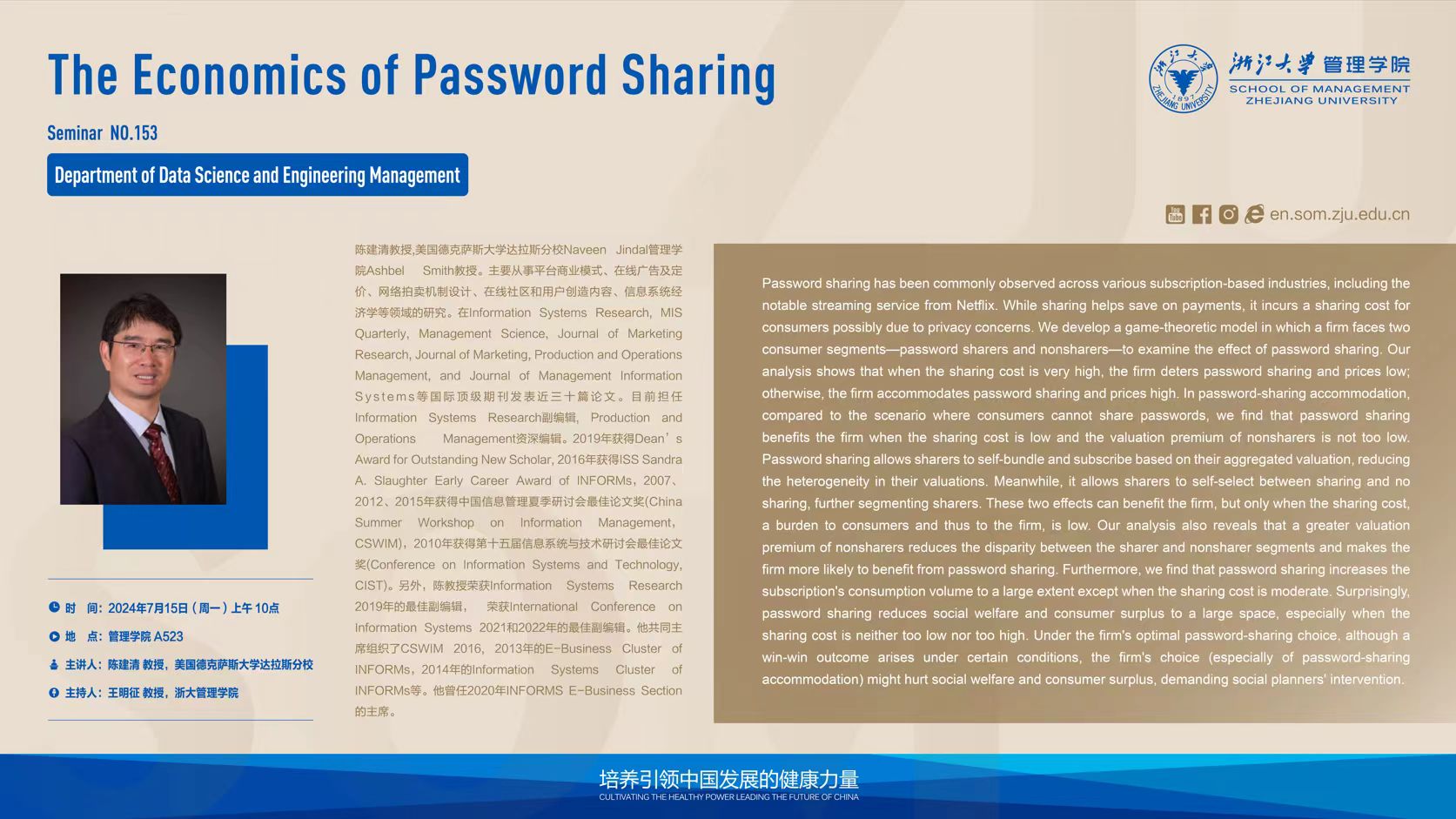Workshop’s Topic: Password sharing has been commonly observed across various subscription-based industries, including the notable streaming service from Netflix. While sharing helps save on payments, it incurs a sharing cost for consumers possibly due to privacy concerns. We develop a game-theoretic model in which a firm faces two consumer segments - password sharers and nonsharers - to examine the effect of password sharing. Our analysis shows that when the sharing cost is very high, the firm deters password sharing and prices low; otherwise, the firm accommodates password sharing and prices high. In password-sharing accommodation, compared to the scenario where consumers cannot share passwords, we find that password sharing benefits the firm when the sharing cost is low and the valuation premium of nonsharers is not too low. Password sharing allows sharers to self-bundle and subscribe based on their aggregated valuation, reducing the heterogeneity in their valuations. Meanwhile, it allows sharers to self-selectbetween sharing and nosharing, further segmenting sharers. These two effects can benefit the firm, but only when the sharing cost,a burden to consumers and thus to the firm, is low. Our analysis also reveals that a greater valuation premium of nonsharers reduces the disparity between the sharer and nonsharer segments and makes the firm more likely to benefit from password sharing. Furthermore, we find that password sharing increases the subscription’s consumption volume to a large extent except when the sharing cost is moderate. Surprisingly, password sharing reduces social welfare and consumer surplus to a large space, especially when the sharing cost is neither too low nor too high. Under the firm’s optimal password-sharing choice, although a win-win outcome arises under certain conditions, the firm’s choice (especially of password-sharing accommodation) might hurt social welfare and consumer surplus, demanding social planners’ intervention.
Time and Location: 10:00 AM (GMT+8), Room A523 (School of Management)
Language: Bilingual (Chinese and English)
